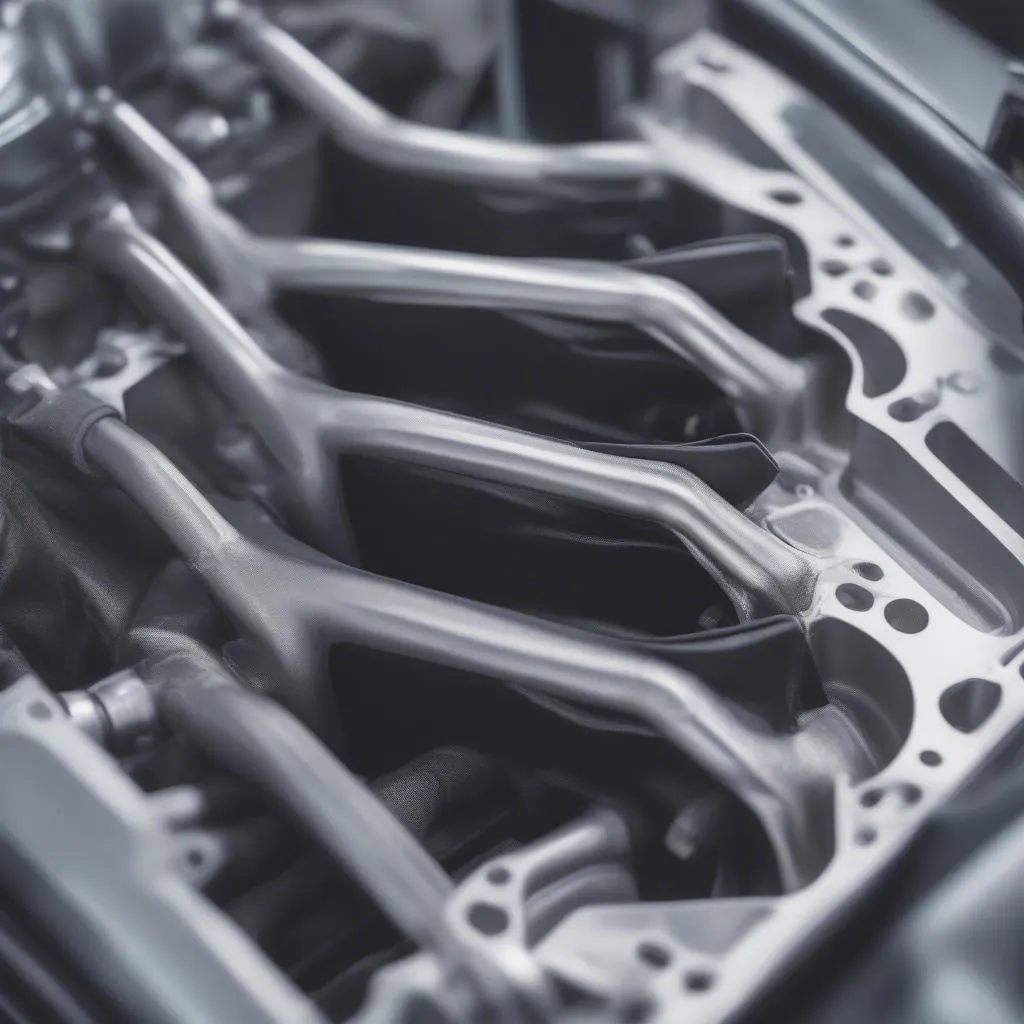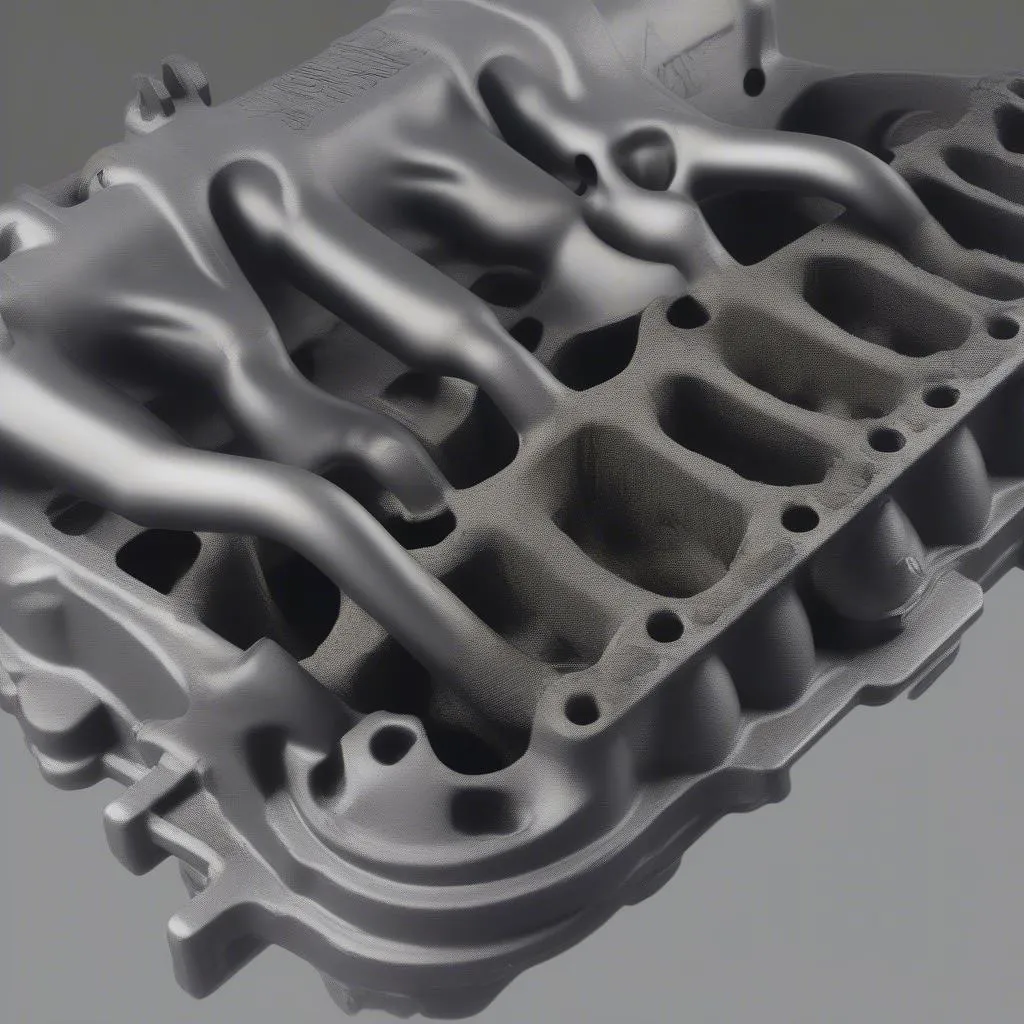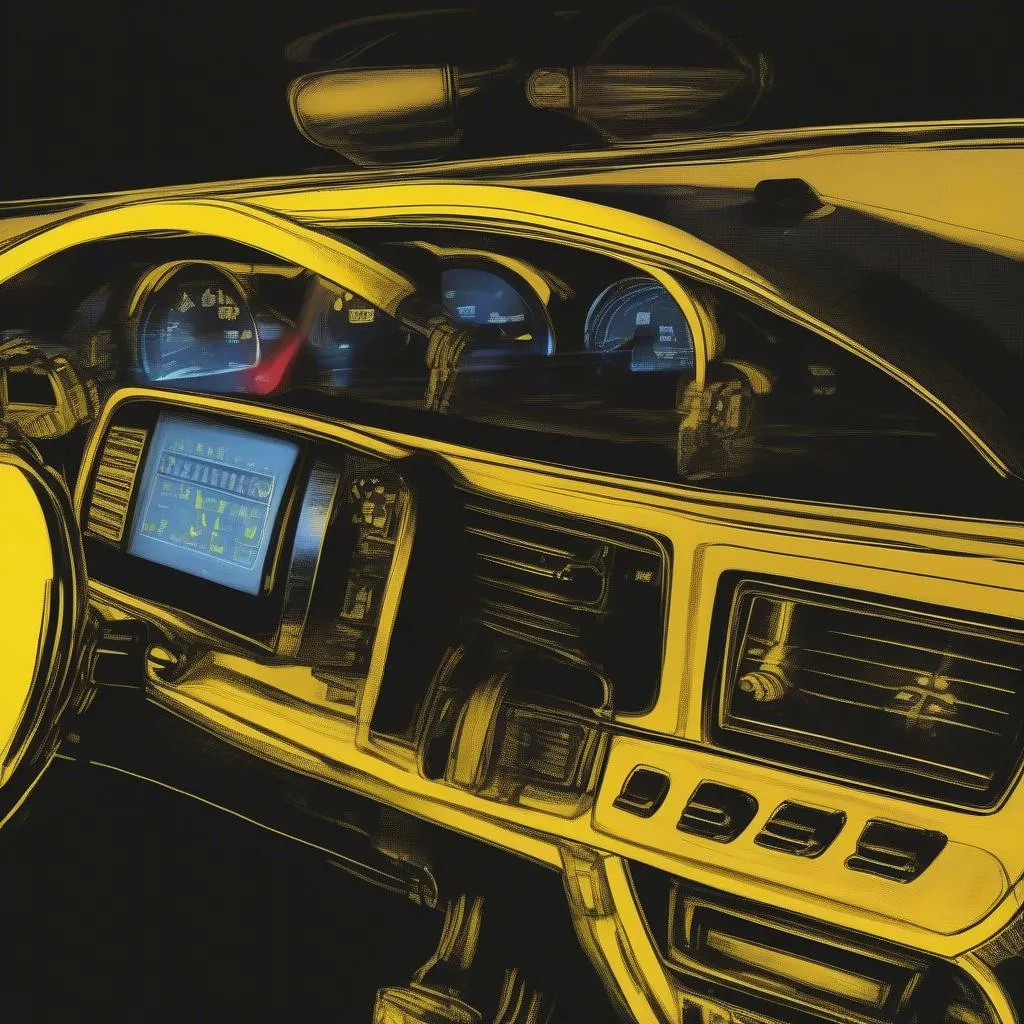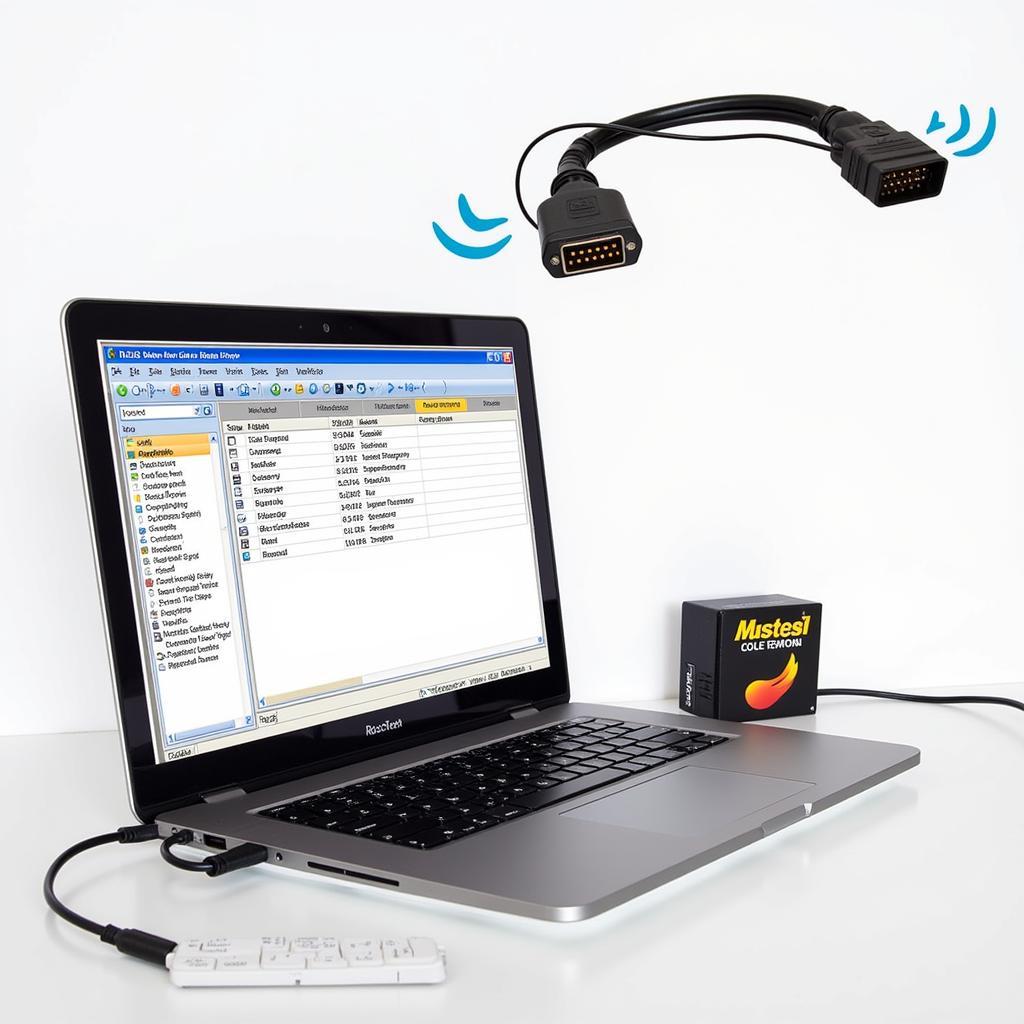The 00953 VCDS code is a common fault code encountered when diagnosing issues in vehicles from the Volkswagen Audi Group (VAG) using a VCDS diagnostic tool. This code indicates a malfunction within the Intake Manifold Runner Control (IMRC) system, specifically pointing to a problem with the intake manifold flap air flow.
This article delves deep into the 00953 VCDS code, explaining its meaning, causes, symptoms, diagnosis methods, and potential solutions. Whether you’re a seasoned mechanic or a car enthusiast looking to understand your vehicle better, this guide will equip you with the knowledge to tackle this issue head-on.
What Does the 00953 VCDS Code Mean?
The IMRC system is crucial for optimizing engine performance and fuel efficiency across varying engine speeds. It does this by adjusting the length of the intake manifold runners using adjustable flaps.
When your VCDS scan reveals the 00953 code, it indicates an issue with the air flow through these intake manifold flaps. This could mean the flaps are stuck, the actuator controlling them is faulty, or there’s a problem with the wiring or sensors within the system.
 intake manifold flaps
intake manifold flaps
Causes of the 00953 VCDS Code
Several factors can trigger the 00953 VCDS code, including:
- Carbon Buildup: Over time, carbon deposits can accumulate on the intake manifold flaps and within the intake manifold itself, hindering their movement and airflow.
- Faulty Intake Manifold Runner Control Actuator: The actuator responsible for controlling the flaps can fail due to electrical or mechanical issues.
- Wiring Problems: Damaged, corroded, or loose wiring connections between the actuator, sensors, and the engine control unit (ECU) can disrupt communication and lead to malfunctions.
- Vacuum Leaks: In some vehicles, the IMRC system utilizes vacuum pressure to operate, and leaks within the vacuum lines can cause operational issues.
- Failed Sensors: Malfunctioning sensors responsible for monitoring the position of the intake manifold flaps or air pressure within the manifold can trigger the fault code.
 carbon buildup intake manifold
carbon buildup intake manifold
Symptoms of the 00953 VCDS Code
The appearance of the 00953 VCDS code might be accompanied by several noticeable symptoms, such as:
- Check Engine Light Illumination: The most common indication of a problem, prompting a diagnostic scan.
- Reduced Engine Performance: You may experience a decrease in power and acceleration, particularly at low RPMs.
- Rough Engine Idle: The engine might idle erratically or roughly due to the disrupted airflow.
- Poor Fuel Economy: The engine might compensate for the airflow issue by consuming more fuel.
- Unusual Engine Noise: You might hear a whistling or hissing sound coming from the intake manifold area.
 check engine light dashboard
check engine light dashboard
Diagnosing the 00953 VCDS Code
Diagnosing the root cause of the 00953 code requires a systematic approach:
- Read Fault Codes: Begin by connecting your VCDS tool and retrieving all stored fault codes to understand the complete picture.
- Inspect for Visual Damage: Visually examine the intake manifold, vacuum lines (if applicable), wiring harnesses, and connectors for any signs of damage, loose connections, or carbon buildup.
- Test the Intake Manifold Runner Control Actuator: Use the VCDS tool to actuate the intake manifold flaps and observe their movement. Also, check for proper voltage and ground signals at the actuator connector.
- Check for Vacuum Leaks: If your vehicle uses a vacuum-operated system, inspect the vacuum lines for leaks using a handheld vacuum pump or by spraying soapy water around the lines and watching for bubbles.
- Test Relevant Sensors: Consult your vehicle’s repair manual to identify and test the sensors related to the IMRC system, such as the manifold absolute pressure (MAP) sensor and the intake air temperature (IAT) sensor.
Potential Solutions for the 00953 VCDS Code
Once you’ve pinpointed the underlying cause, you can proceed with the appropriate solution:
- Clean the Intake Manifold and Flaps: If carbon buildup is the culprit, thoroughly clean the intake manifold and flaps using dedicated cleaners or by removing them for a more intensive cleaning.
- Replace the Intake Manifold Runner Control Actuator: If the actuator is faulty, replace it with a new one. Ensure proper installation and calibration as per the manufacturer’s instructions.
- Repair or Replace Damaged Wiring: Repair any damaged wiring or replace the affected sections of the wiring harness to restore proper communication.
- Fix Vacuum Leaks: Seal any leaks in the vacuum lines using appropriate sealant or replace the damaged lines entirely.
- Replace Faulty Sensors: Replace any malfunctioning sensors with new ones and ensure they are correctly calibrated.
Frequently Asked Questions
Can I still drive with the 00953 VCDS code?
While you might be able to drive for a short period, it’s not recommended. Ignoring this code can lead to decreased performance, reduced fuel efficiency, and potential further damage to your engine.
How much does it cost to fix the 00953 VCDS code?
The repair cost varies greatly depending on the underlying cause and your vehicle’s make and model. Simple cleaning might cost under $200, while replacing the actuator or other components can range from $300 to over $1000.
Can I fix the 00953 VCDS code myself?
If you have mechanical experience and access to the necessary tools and resources, you might be able to tackle some repairs, like cleaning or replacing the actuator. However, more complex issues might require professional assistance.
Note: Seeking Professional Help
Remember, while this guide provides comprehensive information, it’s crucial to consult your vehicle’s repair manual for specific instructions and safety precautions. If you’re uncomfortable diagnosing or repairing the issue yourself, it’s always best to seek help from a qualified mechanic or dealership specializing in your vehicle’s make and model.
Need further assistance?
Contact CARDIAGTECH for professional diagnostic tools and expert advice. We offer a wide range of products designed to help you understand and resolve your vehicle’s issues effectively.


